After a Long, Arduous Journey, Pedro Pascal Proves That Nice Guys Can Finish First
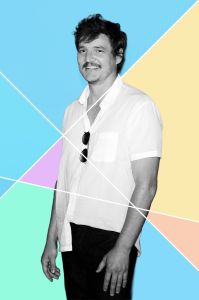
Hollywood is a brutal business. Behind every red carpet moment or blockbuster headline, there is often a long, invisible trail of rejection, obscurity and emotional toil. For every young actor who rockets to fame in their twenties, there are dozens more who spend years, if not decades, waiting in the wings for a chance to shine. Some eventually make it to the big time, some have a fleeting moment of glory, but many others never make it. The industry is as much about timing and resilience as it is about talent, and it has a long history of rewarding persistence belatedly.
Take Bryan Cranston, for instance. Before he became the formidable Walter White in Breaking Bad, Cranston was best known for playing the goofy dad on Malcolm in the Middle. He spent much of his early career in minor TV roles, voiceover work and commercials. It was not until his fifties when the full range of his dramatic capabilities came to light; by which time, he was suddenly hailed as one of the greatest television actors of his generation.
J.K. Simmons followed a similarly winding path. Despite being a powerful screen presence, Simmons spent years in supporting roles and bit parts – TV procedurals, independent films, and character acting gigs – before Whiplash (2014) thrust him into the spotlight and won him an Academy Award at 60. Jon Hamm was a struggling actor for well over a decade before Mad Men made him a household name at 36. Even Samuel L. Jackson, now a cinematic icon and the highest grossing actor of all time, only got his breakout role in Pulp Fiction during his mid40s, after spending decades doing bit roles.
These actors prove that success in Hollywood is not always about youth or instant stardom. It is also about endurance and sticking around long enough for the world to finally catch up to what you have always had to offer. Into this lineage of late bloomers steps Pedro Pascal, a name that, just a few years ago, was largely unfamiliar to mainstream audiences.
Today, Pascal is one of the most recognisable and beloved faces in entertainment. He has starred in some of the biggest franchises on television, from Game of Thrones to The Mandalorian to The Last of Us. His popularity is such that even Apple used him for its AirPods advertisement. Indeed, his image is meme-worthy, his performances widely acclaimed, and his star power undeniable. But none of it came easily.
Before he became Hollywood’s favourite reluctant father figure and Marvel’s next leading man (the upcoming Fantastic Four reboot), Pascal spent close to two decades in the shadows of the industry, taking on forgettable one episode TV roles, navigating personal loss, and often questioning whether it would ever happen for him. In fact, it took him until he was about 40 for his big break to come, and even then, it came with no guarantees.
EARLY LIFE
Born José Pedro Balmaceda Pascal on 2 April 1975 in Santiago, Chile, Pascal’s birth occurred during the most tumultuous period of political upheaval in his home country. Two years before Pascal was born, the democratically elected socialist government of President Salvador Allende was overthrown by General Augusto Pinochet, leading to the country becoming a military dictatorship. Pascal’s mother, Verónica Pascal Ureta, was a child psychologist and the cousin of Andrés Pascal Allende, the nephew of President Allende. Andrés Allende was an early leader of the Movement of the Revolutionary Left, an urban guerrilla movement dedicated to the overthrow of the military dictatorship of General Pinochet. Pascal’s father, José Balmaceda Riera, was a fertility doctor and a member of the Castilian-Basque aristocracy, part of the traditional social and political elite in Chile. Pascal also has an older sister named Javiera, a younger brother named Nicolás, and a younger sister named Lux, who is an actress and transgender activist.
While both of Pascal’s parents were supporters of the opposition, they became enemies of the state almost by accident. When Pascal was four months old, a gunshot victim from an anti-dictatorship protest was brought to his home so that his father, a medical student, could tend to the wound. His parents subsequently decided to hide the person for a while, but eventually, the gunshot victim was taken into custody and tortured. He gave away names, which included his parents’. Their familial relationships further brought them under the scrutiny of the state’s secret police. Running to safety, Pascal’s parents brought Pascal and his older sister Javiera to the Venezuelan embassy in Santiago and took refuge there for around six months. They eventually fled the country – first to Denmark and then to the US.
In the US, the family first settled in San Antonio, Texas, where Pascal spent much of his childhood. Spanish was spoken at home and the family maintained strong ties to Chilean culture. They often made trips back to Chile after democracy was restored in the country. He recalled, “I have really fond memories of Texas. By the time I was eight, we started to go back to Chile very regularly, and many family members came to visit us because we couldn’t go visit them.” Although Pascal has strong ties back in Chile, he had also grown up under a very different cultural context in the US. He has often spoken about the push-and-pull dynamics between the Chilean and American identities he experienced growing up. He reflected on this dual identity, “I’ve always felt like I belong to two places, but also not quite entirely to either.”
Pascal fell in love with the movies from a young age as his parents would often take him and his siblings to the cinema. Pascal recalled his parents bringing him and his older sister to a cinema in San Antonio to watch the R-rated Purple Rain (starring Prince) in 1984. “My mother had too restless a mind for that (movies), an artist’s mind,” he said. “But in that theatre, she fell in love with Prince.” Purple Rain also made Pascal fall in love with Prince (still one of his favourite artistes to this day) and paved the way for his life-long love affair with the movies.
Beyond the movies, Pascal initially dreamed of being a competitive swimmer. He had participated in the Texas state championships until the age of 11 when he moved to Orange County, California. Thereafter, he stopped competitive swimming to focus on strengthening his acting skills instead. Life in California was not a bed of roses. Pascal faced severe bullying in school over the course of “two really, really hard years,” and often turned to the movies as an outlet. He recalled, “I didn’t fit in and it was pretty lonely. The way that I was occupying my time, I started reading plays and renting the classics.”
To pursue acting more seriously, Pascal enrolled at the Orange County School of the Arts (OCSA), a public arts high school known for nurturing creative talent. Here, his flair for performance found fertile ground. He immersed himself in acting, studying classic plays and learning from skilled teachers. He graduated in 1993 and moved to New York to attend New York University’s (NYU) Tisch School of the Arts, where he graduated in 1997. The support of his mother, Verónica, was pivotal. She championed his artistic dreams at every turn, and Pascal has said in multiple interviews that she was his “hero,” and that her unwavering belief in him kept him grounded through the hardest times.
“Before he became Hollywood’s favourite reluctant father figure and Marvel’s next leading man (the upcoming Fantastic Four reboot), Pascal spent close to two decades in the shadows of the industry, taking on forgettable one-episode TV roles, navigating personal loss, and often questioning whether it would ever happen for him.”
CAREER STRUGGLES
In 1995, Pascal’s parents moved back to Chile after having lived in the US since fleeing Chile in the mid-70s. His two younger siblings also returned to Chile to be raised there despite being born in the US. After graduating from the Tisch School of the Arts in 1997, Pascal stayed in New York City. Determined to become a serious actor, he began working steadily in the theatre scene, acting in numerous off-Broadway productions, including classical roles in Shakespeare and Chekhov. While his stage work earned him respect among peers, it did not translate into financial stability or mainstream visibility.
In parallel with his stage career, Pascal began securing small roles on television. One of his first screen appearances was in 1999 on an episode of Buffy the Vampire Slayer, playing a college student who briefly dates Buffy before becoming a vampire himself. He was credited under the name “Pedro Balmaceda.” From there, he became a familiar face in episodic television, though often in bit parts. He also had guest roles in Good vs. Evil and Downtown.
Then tragedy struck in 2000 when Pascal’s mother, Verónica, died by suicide in Chile. Pascal was just 24 when his mother passed away, and his two younger siblings were even younger (Pascal’s younger sister, Lux, and younger brother, Nicolás, are more than 15 years his junior). Upon hearing the news of his mother’s passing, he immediately flew to Chile from Los Angeles, where he had moved in order to develop his acting career. His mind was particularly occupied with comforting his younger sister and brother. “They were very young kids, so much younger than me and my older sister, so even if they hadn’t lost a parent, we would still feel parental toward them,” Pascal said. “And I didn’t naively think I could fill a space like that, but I just always wanted to be like, I’m here.”
Verónica’s death deeply affected Pascal. In her memory, he began using her surname, Pascal, professionally – both as a tribute and as a means of preserving her legacy. He remembered, “She was always incredibly supportive, never a stage mom. I always felt like she knew something that I didn’t. None of (my success) would be real if it weren’t for her.” The emotional gravity of this loss, and the personal transformation it triggered, would resonate throughout the rest of his career and personal life.
In many ways, Pascal’s roles – particularly those involving mentorship, protection or loss – seem to draw from this well of lived experience. And to this day, he remains extremely protective of his loved ones. “It could have to do with the fact that I don’t have my own family, and that my siblings and my chosen family are where I invest all of my emotional energy,” Pascal explained. Pascal still frequently visits Chile and maintains close ties with his extended family there. And in 2021, when his younger sister Lux, a transgender actress and advocate, came out publicly, Pascal was among her most vocal supporters. He posted her Ya! magazine cover with the caption “Mi hermana, mi corazón” (“My sister, my heart”) – a gesture that went viral and was celebrated for its warmth and inclusivity. He remains one of the biggest supporters of the LGBTQ+ movement to this day.
GAME OF THRONES
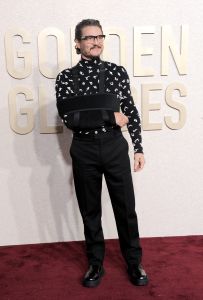
After the death of his mother, Pascal’s career slowed down considerably for a few years. Over the next decade, he only landed small roles, often playing criminals, cops or the “ethnic” character of the week. He had guest roles in TV series like NYPD Blue, Without a Trace, Law & Order, Law & Order: Criminal Intent, Nurse Jackie and The Good Wife. These parts rarely lasted more than one episode, and many were emotionally demanding or morally ambiguous.
In an interview with Variety, Pascal reflected on those years with a mix of fondness and fatigue. “I was always working, but not always acting,” he said. “Sometimes I was waiting tables, moving furniture, or working as a bartender.” Despite his dedication, a lack of work meant Pascal was often in financial difficulties and he had to rely on his friends to get by, which include one of his closest friends in Hollywood – Sarah Paulson. Pascal and Paulson have been friends for over 30 years now and have a very close relationship. The best pals first met in 1993 when Pascal went to New York City to study at NYU’s Tisch and befriended a group of recent LaGuardia High graduates through his NYU friend – a group that included Paulson. Paulson recalled, “We would go to see movies all the time in those years, and we would get so lost in them. You can fill in the blanks about the why of that however you like, but I think there were things we wanted to escape mentally, emotionally, spiritually.”
One of Pascal’s earliest memories together with Paulson was going to see the movie Fearless with their friends in the Upper East Side. “There were eight of us sitting next to each other and, as I remember, we were all sobbing by the end of it.” Pascal recalled. After finishing the movie, they all went to the park, where they just so happened to see Woody Harrelson. “We were the two people who knew exactly who he was and fanned out a little bit. Nobody else cared,” Pascal said. “We had our little celebrity sighting moment and that, in retrospect, was our first step towards bonding.” Their wild night out did not end there, because Pascal remembered the group “running down Fifth Avenue” and “getting knocked down by a cabbie.”
It was a night that proved to be a life-bonding experience. While Pascal and Paulson briefly lost touch in the late 1990s when Paulson moved to Los Angeles to further her career, they reconnected in the 2000s when Pascal went over to Los Angeles as well. During Pascal’s toughest times in the 2000s, Paulson would give him her per diem money so he could afford to eat and travel for auditions.
It was during those years that Pascal considered giving up acting altogether. As he approached his late 30s, he felt he had done everything “right” – gone to a prestigious school, paid his dues on the stage, built a network – but the big break still did not come. He admitted that he often questioned whether he could continue: “It’s not that I didn’t think I was talented. It’s just that I thought I might be invisible.” Pascal’s tough times would continue into the early 2010s, where he still got hardly any work – snagging one-episode parts in TV series like Charlie’s Angels, Body of Proof, CSI: Crime Scene Investigation; Nikita and Homeland. Then the turning point of his career came in 2014 when Pascal was cast as Oberyn Martell in HBO’s Game of Thrones.
Interestingly, Paulson had a huge part in Pascal nabbing the role. Pascal had convinced Paulson to send his audition tape to her best friend Amanda Peet, who is married to David Benioff, the Game of Thrones showrunner with D.B. Weiss. Benioff and Weiss had, in fact, been inundated with audition tapes for the role, but Pascal’s stood out. It was filmed on an iPhone by a friend (also rumoured to be Paulson), but the performance was raw and compelling, perfectly capturing the charisma and danger of the Dornish prince. Pascal duly won the part.
When Game of Thrones Season 4 aired in 2014, Pascal was no longer invisible. His portrayal of Oberyn Martell was electric: seductive, intelligent, and driven by a sense of justice and personal tragedy. Though the character only appeared for seven episodes, he left an indelible impression. His death scene – facing off against The Mountain – was one of the most talked-about and brutal moments in the series, and it catapulted Pascal to global recognition. Pascal nailed the portrayal of Martell to perfection, and made audiences across the world sit up and take notice of him.
That performance changed everything. It was not just the exposure, it was also validation that, after nearly 20 years of grinding, Pascal could carry a role of complexity and charm on a massive stage. “Game of Thrones gave me a career,” he admitted bluntly. “That’s the truth. It’s where everything turned.”
A FOOT IN THE MOVIES
Pascal’s success in Game of Thrones finally opened doors to more substantial projects. His years in the wilderness was effectively over. One of the first major parts he snagged post-Game of Thrones was his role as the real-life DEA agent Javier Peña in Netflix’s Narcos, which ran from 2015 to 2017. Peña was a key figure in the real-life US operation to dismantle the infamous Medellín and Cali cartels.
Pascal’s performance as DEA agent Peña was another major win. It was grounded and nuanced – neither overly glamourising law enforcement nor ignoring the murky ethics of the drug war. Pascal played Peña as a man often conflicted by the political and moral complexities of his job. The show’s use of voice-over narration allowed Pascal to demonstrate emotional range beyond the action sequences, and fans responded well to his quiet intensity. When Narcos debuted in 2015, it quickly became one of Netflix’s most popular international series. Pascal remained a central figure through its first three seasons. In fact, Pascal became so closely associated with his Game of Thrones and Narcos characters, he would frequently be stopped in the streets because of them. He recalled, “On the street, I get either ‘Are you the Red Viper?’ or ‘Are you Javier Peña?’”
With his star on the ascendency, Pascal also finally got a foot into the movies. His first major film role came in 2016, when he starred alongside Matt Damon, Willem Defoe and Andy Lau in the Zhang Yimou-directed action blockbuster The Great Wall. In the mega-Chinese/American coproduction, Pascal played Damon’s sidekick as two wandering European mercenaries who are captured by the Chinese army of the Nameless Order shortly after they slay a mysterious green monster. They must then join forces with the Nameless Order to fight hordes of the same monsters, known as “Tei Tao,” which are attacking the Great Wall of China.
While The Great Wall received generally unfavourable reviews from many critics, some had a good word for Pascal. Reelviews’ James Berardinelli noted that Pascal “provides a dose of comedy; a few of his deadpan lines are genuinely funny.” More importantly, The Great Wall was a roaring success internationally. While it only grossed US$45 million domestically, it generated over US$334 million in worldwide box office receipts, and was a moderate success.
Strangely, Pascal’s early movie starring roles came mostly as villains. Following The Great Wall, his next two major roles were both villainous. First, he played Agent Whiskey in the star-studded Kingsman: The Golden Circle (2017), a rogue agent motivated by equal parts grief and greed. He then starred opposite Denzel Washington in The Equaliser 2 (2018) as another rogue agent…this time, motivated by only greed. While both movies were not critical darlings, they were successful commercially, taking in over US$410 million and US$190 million across the world respectively. Pascal recalled amusingly of his villainous castings, “I’m not dangerous, but I have a sharp nose. I will probably be playing bad guys forever because of my face.” However, the fact remains that while Pascal might not have been a movie A-lister at that time, he did prove that he could be as big a draw in films as he was on TV.
“Beyond the movies, Pascal initially dreamed of being a competitive swimmer. He had participated in the Texas state championships until the age of 11 when he moved to Orange County, California. Thereafter, he stopped competitive swimming to focus on strengthening his acting skills instead.”
THE MANDALORIAN

Ironically, despite Pascal’s forays into the movies, it was again television which would elevate him further up the next level. If Game of Thrones introduced Pascal to the world, and Narcos cemented his bankability, it was The Mandalorian that made him a cultural phenomenon. In 2019, Pascal was cast as Din Djarin, the titular Mandalorian in the first live-action Star Wars TV series. Created by Jon Favreau and produced by Lucasfilm for Disney+, The Mandalorian was a major gamble: a new story set in a beloved galaxy, centred on a helmeted bounty hunter with few words and even fewer allies.
Pascal’s casting initially raised eyebrows – how do you hire a classically trained actor known for emotional complexity and then keep his face hidden most of the time? But this unconventional pairing proved to be brilliant. Pascal infused Din Djarin with quiet gravitas, a sense of wounded solitude, and unexpected tenderness. Even beneath a helmet, his physicality, voice work and timing told a story. As the bond between Djarin and Grogu (aka “Baby Yoda”) deepened, audiences were smitten. Pascal became a household name, and The Mandalorian became a flagship title for Disney+.
Interestingly, due to scheduling and safety concerns, Pascal was not always the one physically wearing the suit on set – his stunt doubles Brendan Wayne and Lateef Crowder have often filled in during action-heavy scenes. However, Pascal always records the dialogue and performs the key moments that define the character emotionally. In 2020, he described the process to Variety: “It’s a team effort. I work very closely with the stunt doubles, and we’ve created a language and performance style that feels consistent.”
The show’s success elevated Pascal to a new level of stardom. He became the subject of endless internet memes and affectionately gained the nickname “Daddy,” a title he has embraced with tongue-in-cheek charm. “I’m your cool, slutty daddy,” he quipped on a Hollywood Reporter roundtable in 2023 – a line that went viral instantly.
Beyond The Mandalorian, Pascal continued to seek variety in his projects. He took on a supporting role in the Netflix ensemble action thriller Triple Frontier (2019), which also starred Ben Affleck, Oscar Isaac, Charlie Hunnam and Garrett Hedlund, as one of five friends and former special forces operatives who reunite to take down a South American drug lord. Then in 2020, Pascal appeared in the highly anticipated Wonder Woman 1984 as Maxwell Lord, a flashy, morally bankrupt TV personality turned villain. The film was divisive and a box office failure, and Pascal’s over-the-top cartoonish villain, a sharp contrast to his sensitive and stoic turn in The Mandalorian, did not go down well with critics.
Undeterred, Pascal continued to take on risky projects, including the very meta The Unbearable Weight of Massive Talent (2022), opposite Nicolas Cage. In this action comedy, Pascal played Javi Gutierrez, a billionaire superfan of Cage (with Cage playing a parody of himself) who becomes entangled in a spy plot. This time, the role allowed Pascal to showcase his comedic timing, self-awareness, and innate likability, and critics were bowled over by his performance. RogerEbert.com’s Marya E. Gates noted that the affable Pascal “plays up his own ultra-likeable persona” and praised that “what could easily be a fan service cipher in lesser hands is buoyed by Pascal’s layered, emotional performance.” Flickfilosopher’s MaryAnn Johanson called Pascal’s performance “scene-stealing”. Indeed, the chemistry between Pascal and Cage was so delightful that fans began lobbying for them to co-star in a buddy comedy.
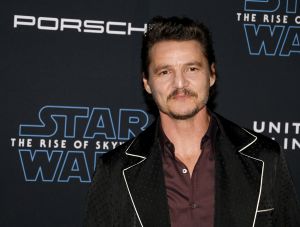
THE LAST OF US
Despite the huge success of The Mandalorian, Pascal would go on to enjoy even bigger success in 2023 when he took on the role of Joel Miller in HBO’s adaptation of The Last of Us, based on the critically acclaimed 2013 video game. Pascal had become available for a new series after the release of the second season of The Mandalorian, and he attracted several offers for projects from large networks, of which he chose The Last of Us, partly to work with co-creator Craig Mazin. In fact, creators Mazin and Neil Druckmann had been considering Pascal for the role for some time.
Funnily, when Pascal got the job, he also almost instantaneously forgot that he got it. He had stayed up late for a virtual meeting with Mazin and Druckmann to discuss the role, and as he needed to get up early the next morning, he took an Ambien (a prescription sedative) to go to sleep. He then receives a call later in the night telling him he got the job, but having taken the Ambien, he did not remember the call (and that he got the job) when he woke up the next morning. Pascal recalled waiting by the phone the whole day hoping that he got the job. And then he looked at his phone and saw congratulatory messages saying “Oh, congratulations. So happy for you.” That was when he recalled, “Oh yeah, I got the job!”
In the highly-acclaimed series, Pascal plays a smuggler and survivor in a post-apocalyptic world ravaged by a fungal infection that turns people into monsters. Joel is hardened by tragedy, having lost his daughter at the start of the outbreak, but is slowly softened again when he is tasked with escorting a teenage girl, Ellie, who may be humanity’s last hope.
Pascal’s performance as Joel was widely praised for its depth, vulnerability and emotional precision. Critics lauded his ability to convey layers of pain, protectiveness and suppressed love – all while navigating the grit and danger of the show’s bleak world. His chemistry with Bella Ramsey, who plays Ellie, became the soul of the series. RogerEbert.com’s Brian Tallerico called Pascal and Ramsey “perfect”, adding that Pascal “portrays Joel as a flawed hero without melodrama, never leaning on some of the crutches other actors would have used,” further praising that it is a “nuanced turn that balances trauma, cynicism, and the character’s emerging hope in a way that always feels true.” The New York Times called Pascal’s work “quietly devastating,” while Time noted that Pascal “makes trauma visible without indulging in melodrama.”
For his considerable efforts, Pascal rightly received recognition from major awards, earning nominations from the Primetime Emmys for Outstanding Lead Actor in a Drama Series and the Golden Globes for Best Performance by a Male Actor in a Television Series, Drama. He also won his first major acting award when he won the Screen Actors Guild Awards for Outstanding Performance by a Male Actor in a Drama Series.
But more than anything else, The Last of Us elevated Pascal into the rarefied space of actors who can successfully lead both high-concept genre work and emotionally intimate drama. He is now a certified Hollywood A-lister at last, and this was exemplified by his involvement in Gladiator 2, one of 2024’s biggest blockbusters. Pascal’s supporting role as General Acacius in Gladiator 2 was not given much screen time, but the character’s nuanced, emotional choices and final heroic sacrifice turned him into one of the movie’s biggest heroes.
PERSONAL LIFE AND ADVOCACY
Pascal has never married and has remained very low-key in terms of his romantic life in public. He has been linked – mostly through rumours and speculation – to a number of his co-stars but these have never been substantiated.
In the early 90s, Pascal starred with Maria Dizzia in an episode of Law & Order, where Pascal played a character named Tito Cabassa opposite Dizzia’s Sugar, his sex worker girlfriend. The Sun reported they briefly dated that decade, but this has never been verified. Likewise, Pascal was briefly linked to Lena Headey, with whom he worked on Game of Thrones. Headey played the infamous Cersei Lannister, while Pascal was Oberyn Martell. Again, while they were romantically linked, this relationship looked more like one of friendship.
In 2015, there were also rumours of Pascal hooking up with Robin Tunney when they were seen in each other’s company quite a bit that year. They were photographed at various events and enjoying time together in public, including at the Emmy Awards in 2015. However, this rumour too dissipated quickly without any real substance. More recently, speculation arose about Pascal dating Friends actress Jennifer Aniston, due to a three hour-long dinner date they shared at the Sunset Tower Hotel’s Tower Bar in Los Angeles. But fan speculation quickly proved to be in vain, when Pascal insisted that the duo are, well, just friends.
Indeed, rather than being a rampant ladies-man, Pascal is more widely known for being kind, humble, and remarkably un-Hollywood despite his fame. Co-stars often describe him as warm and goofy, with a knack for making people feel seen. Bella Ramsey, his The Last of Us co-star, told The Hollywood Reporter, “Pedro is the kind of person who really listens. He’s not just waiting for his turn to speak. That makes him a great actor – and a better friend.”
Likewise, Pascal’s public activism has been subtle but impactful. He has consistently used his platform to support progressive causes, particularly those relating to LGBTQ+ rights, immigrant justice, and mental health awareness. He is a vocal ally to the LGBTQ+ community – not only because of his sister Lux, but because of his own beliefs. He has frequently shared messages of inclusion and pride on his social media, and has spoken out against transphobia, particularly as it relates to US policy. In 2022, he condemned anti-trans legislation in states like Texas and Florida, sharing resources for advocacy and support. He has even publicly blasted J.K. Rowling as a “heinous loser” for her anti-trans views. Pascal is also an outspoken critic of racism and xenophobia. In 2018, he publicly decried US immigration policies that separated children from their families at the border, tweeting: “We should all be screaming. SHAME.” He has participated in fundraising campaigns for refugee aid organisations and has supported non-profits like the International Rescue Committee (IRC) and RAICES Texas.
One of the most poignant examples of his activism came during the 2020 protests following the murder of George Floyd. Pascal joined other actors in amplifying Black voices, sharing educational resources, and donating to bail funds and social justice organisations. He used his Instagram account to post the names of victims of police violence, alongside messages calling for systemic reform. Indeed, Pascal has been very outwardly supportive of the Black Lives Matter movement. He has been seen attending various protests and rallies around the country.
While he does not often publicise his charitable contributions, Pascal is noted to be generous behind the scenes. He has been involved in benefit readings for The Public Theatre and LAByrinth Theatre Company – two institutions that supported his early career, and has donated to youth acting programmes in underserved communities. During the COVID-19 pandemic, Pascal was also a strong supporter of healthcare workers and mutual aid efforts. He donated masks and food to frontline workers in New York and Los Angeles, and used his social media to raise funds for pandemic relief organisations.
MR FANTASTIC
Perhaps, 2025 will see an even bigger explosion of Pascal-mania as he officially steps into the Marvel Cinematic Universe (MCU) for the first time as Reed Richards, a.k.a. Mr Fantastic, in Marvel Studios’ long-awaited Fantastic Four reboot – The Fantastic Four: First Steps. This highly anticipated reboot has been years in the making, with fan speculation and wishful casting often throwing out numerous names as to who should take up the mantle of Marvel’s First Family. Indeed, the husband-wife duo of Joseph Krasinski and Emily Blunt had been speculated to be front runners for the roles of Reed Richards and Susan Storm (a.k.a. Invisible Woman) after Krasinski briefly played the role of Richards in Doctor Strange in the Multiverse of Madness (2022). Thus, imagine the surprise when the casting was officially confirmed by Marvel in February 2024 via social media on Valentine’s Day. It was an image of the team sitting together in cozy attire – with Pascal front and centre as the leader of the new Fantastic Four!
Reed Richards is one of the most complex, cerebral characters in the MCU – brilliant, sometimes arrogant, and often torn between his scientific mind and human emotion. Casting Pascal in the role signals Marvel’s intention to bring emotional depth and gravitas to the reboot, while also injecting warmth and charisma. It is a bold choice that many fans have celebrated as inspired. Pascal himself have expressed joy at taking up the role, saying: “It’s a dream role, but also one I take very seriously. Reed Richards has a legacy in comics that means a lot to people. I hope to bring a humanity to him that feels real and grounded – even in a world full of superpowers.”
Slated for release on 25 July, The Fantastic Four: First Steps marks Pascal’s official entry into the MCU, a move long speculated given his genre appeal and global popularity. With the MCU suffering in recent years from box office underperformance and poor reviews, The Fantastic Four: First Steps is set to bring a new dynamic into the franchise, setting the stage for years of interconnected films and potential spin-offs. Pascal will definitely be a cornerstone of the next phase of Marvel storytelling. Welcome, Mr Fantastic! PRIME
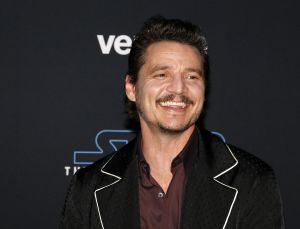
“When Game of Thrones Season 4 aired in 2014, Pascal was no longer invisible. His portrayal of Oberyn Martell was electric: seductive, intelligent, and driven by a sense of justice and personal tragedy. Though the character only appeared for seven episodes, he left an indelible impression. His death scene – facing off against The Mountain – was one of the most talked-about and brutal moments in the series, and it catapulted Pascal to global recognition.”









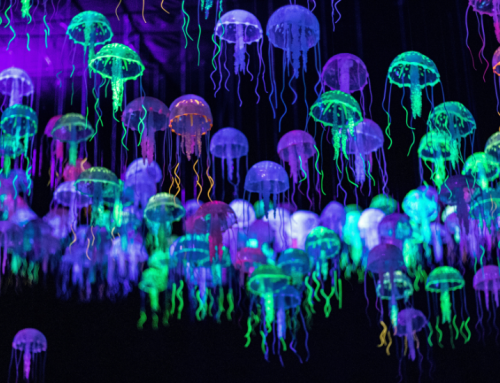


Leave A Comment